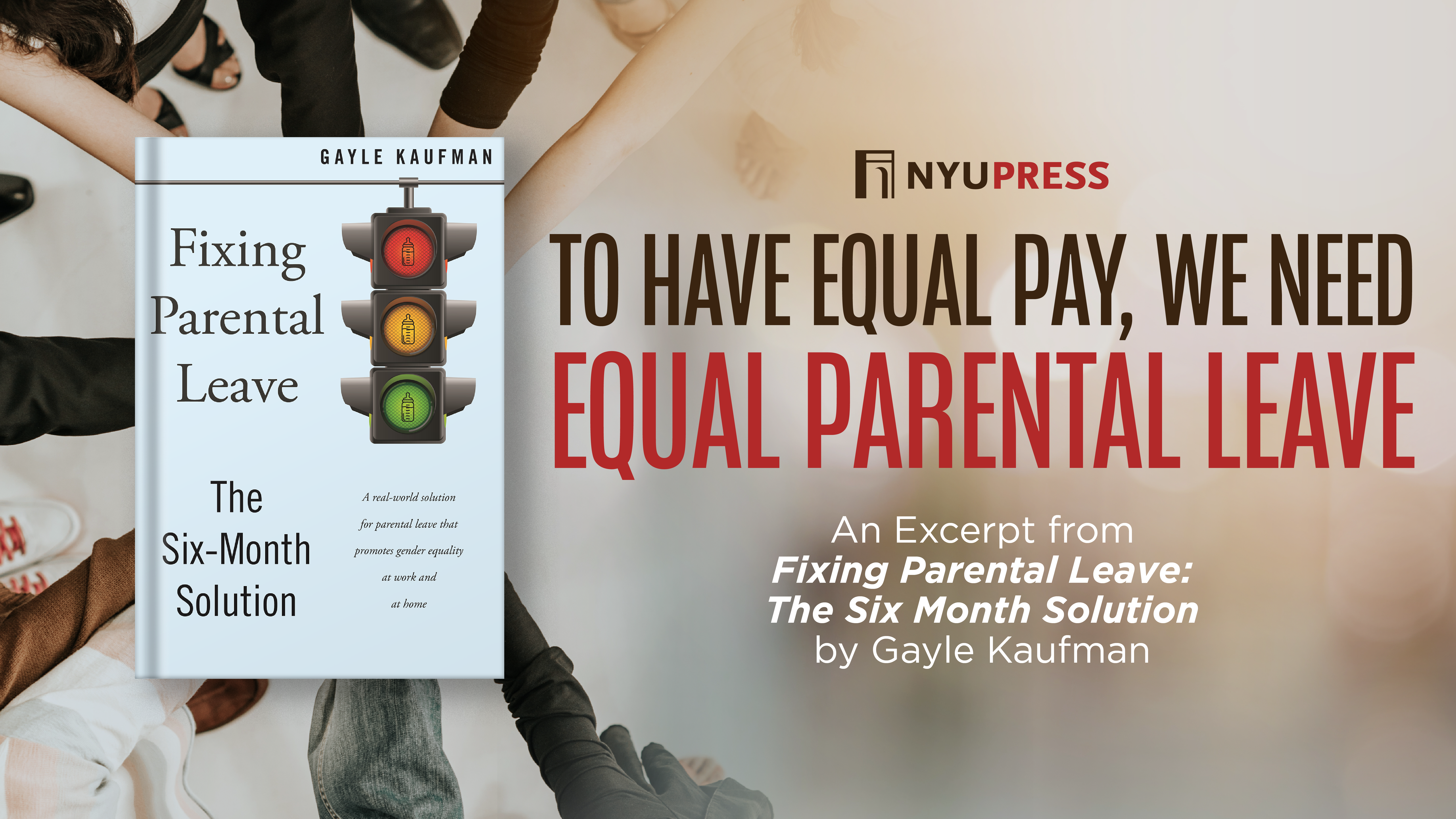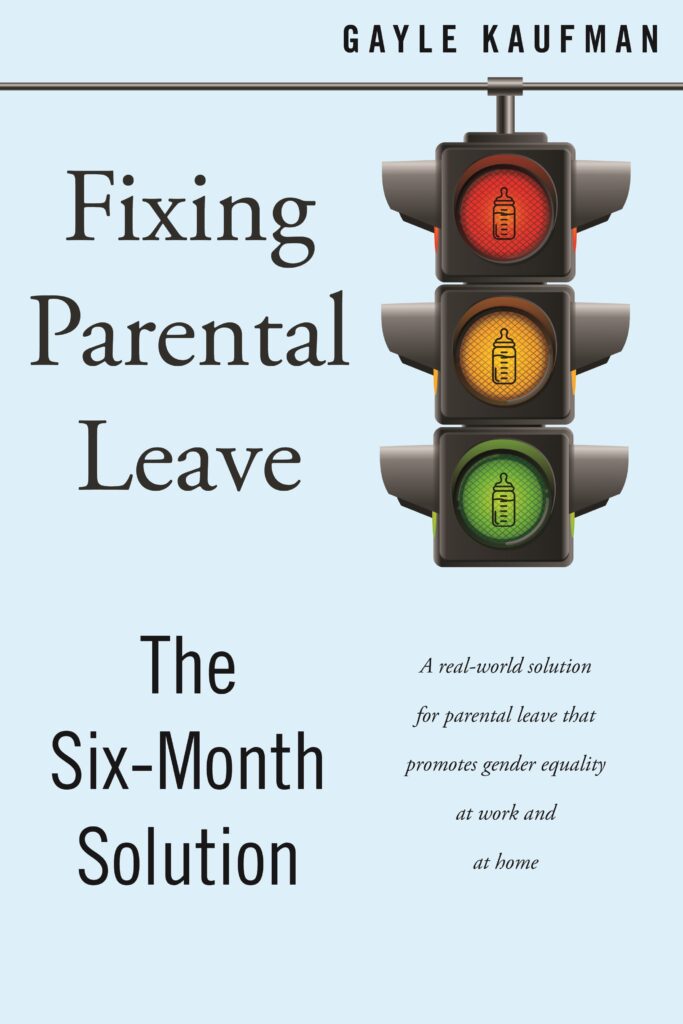An Excerpt From Fixing Parental Leave: The Six Month Solution by Gayle Kaufman
Parental leave may result in lower wages. There is plenty of evidence that mothers experience a wage penalty while men, particularly married, residential fathers, often experience a fatherhood wage premium. In perhaps the most cited study on the motherhood wage penalty, sociologists Michelle Budig and Paula England find that each child is associated with a wage penalty of 7 percent. Some of this penalty is due to the fact that women with more children have less work experience, but even after controlling for job experience, there is still a 5-percent wage penalty for each child. In the US, mothers who use work-family policies that result in fewer work hours or less time at the workplace also experience pay penalties.
One cause of the gender wage gap is gender segregation in occupations. Women tend to work in more female-dominated jobs, which tend to have lower pay. Policies that promote women’s employment may also result in greater occupational gender segregation. Another contributor to the gender wage gap is career interruptions. Women are more likely to experience career interruptions, particularly family-related interruptions, and long maternity leave is a chief reason women face disadvantages in the work force. There is evidence that the negative effect of motherhood on wages is at least partly due to loss of human capital during parental leave. In particular, longer parental leave policies encourage longer career interruptions for women, which exacerbates the gender wage gap. In addition to human capital depreciation, when employers expect women to have children and take leave, they are more hesitant to hire and promote women, a form of statistical discrimination. Employers may see long parental leaves as a “legitimate” reason to discriminate against women and favor men.
Researchers from the Netherlands find a sizable wage penalty from parental leave occurring as soon as during the first year. More commonly, researchers find a negative impact of maternity leave on women’s wages in the longer term. Different studies find different penalties, but two studies from Germany suggest there are large penalties. One study shows that women suffer wage penalties of 0.4 percent per month of parental leave and 1.3 percent per year beyond the initial year of parental leave. Another study shows that each year of parental leave decreases wages by 18 percent.
Based on a study that followed the career progression of a group of health care administration graduates in the US, career interruptions that are seen as voluntary, such as parental leave, have a larger negative impact on long-term salary growth than career interruptions that are seen as involuntary, such as unemployment, or part-time work. The health administration researchers go so far as to recommend that workers continue with part-time work rather than take leave during times of greater family responsibilities in order to ensure that they suffer fewer negative impacts from career interruptions. It would seem employers do judge those who take parental leave more harshly.
Furthermore, according to cross-national research, parental leave is more likely to have a negative effect on earnings in countries where there is greater support for more traditional roles in which men act as bread-winners and women as caregivers. Some argue that the gender pay gap is due to the unequal division of family responsibilities. Using Swedish register data, economist Nikolay Angelov and colleagues were able to examine parents of first-born children and track their labor market activities before and after the birth of their child. They found that the gender gap in wages increased after having a child such that mothers had 10 percent lower wages than fathers fifteen years after the birth of their first child. Sociologist Lynn Prince Cooke finds that motherhood penalties are similar across Australia, the UK, and the US for those in the upper half of the earnings distribution but wider in the US for earners in the bottom half. These patterns are encouraged by the lopsided division of labor at home. With women, and especially mothers, doing more housework and childcare, they have less time to focus on their jobs. Employers also expect women to place more priority on their families and this can affect hiring and promotion. This may extend to parental leave. Jennifer Hook, author of Gendered Tradeoffs, uses time-use surveys from nineteen countries to examine the effect of parental leave policies on housework. She finds that women do more housework in countries with long parental leave. On the other hand, women do less housework in contexts where men have access to parental leave.
…Men are not immune to the negative effects of long leaves. Particularly because men are expected to take shorter leaves compared to women, those who take leave often face backlash at work. The answer is not to have no leave but to consider a moderate amount of leave for both parents. Much of the negative impact of long parental leave may be due to the unequal division of parental leave and gendered expectations regarding women and men at home and at work.
Gayle Kaufman is Nancy and Erwin Maddrey Professor of Sociology and Gender & Sexuality Studies at Davidson College in North Carolina.



 Six Classics of Queer Literature
Six Classics of Queer Literature